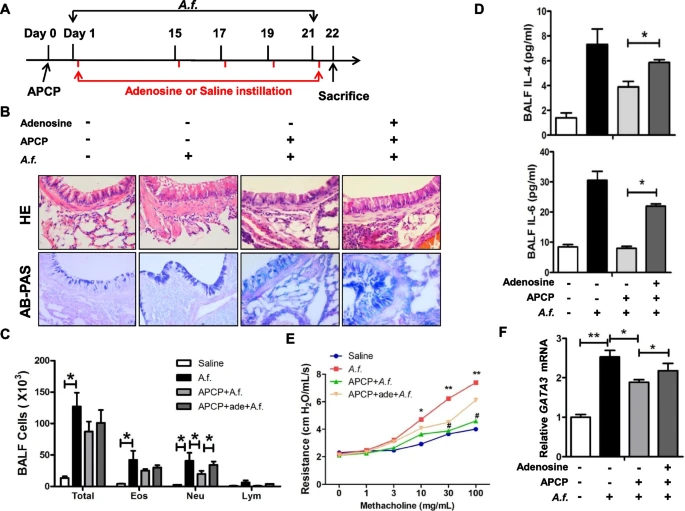- Research
- Open Access
BMC Pulmonary Medicine 23, Article number: 258 (2023)
Abstract
Background
Neutrophils consume a large amount of energy when performing their functions. Compared with other white blood cells, neutrophils contain few mitochondria and mainly rely on glycolysis and gluconeogenesis to produce ATP. The inflammatory site is hypoxic and nutrient poor. Our aim is to study the role of abnormal adenosine metabolism of neutrophils in the asthmatic airway inflammation microenvironment.
Method
In this study, an asthma model was established by intratracheal instillation of Aspergillus fumigatus extract in Ecto-5'-Nucleotidase (CD73) gene–knockout and wild-type mice.
Multiple analyses from bronchoalveolar lavage fluid (BALF) were used to determine the levels of cytokines and chemokines. Immunohistochemistry was used to detect subcutaneous fibrosis and inflammatory cell infiltration. Finally, adenosine 5’-(α, β-methylene) diphosphate (APCP), a CD73 inhibitor, was pumped subcutaneously before Aspergillus attack to observe the infiltration of inflammatory cells and subcutaneous fibrosis to clarify its therapeutic effect.Result
 |
| APCP treatment reduces airway inflammation. |
Conclusion
Elevated adenosine metabolism plays an inflammatory role in asthma, and CD73 could be a potential therapeutic target for asthma.

No comments:
Post a Comment